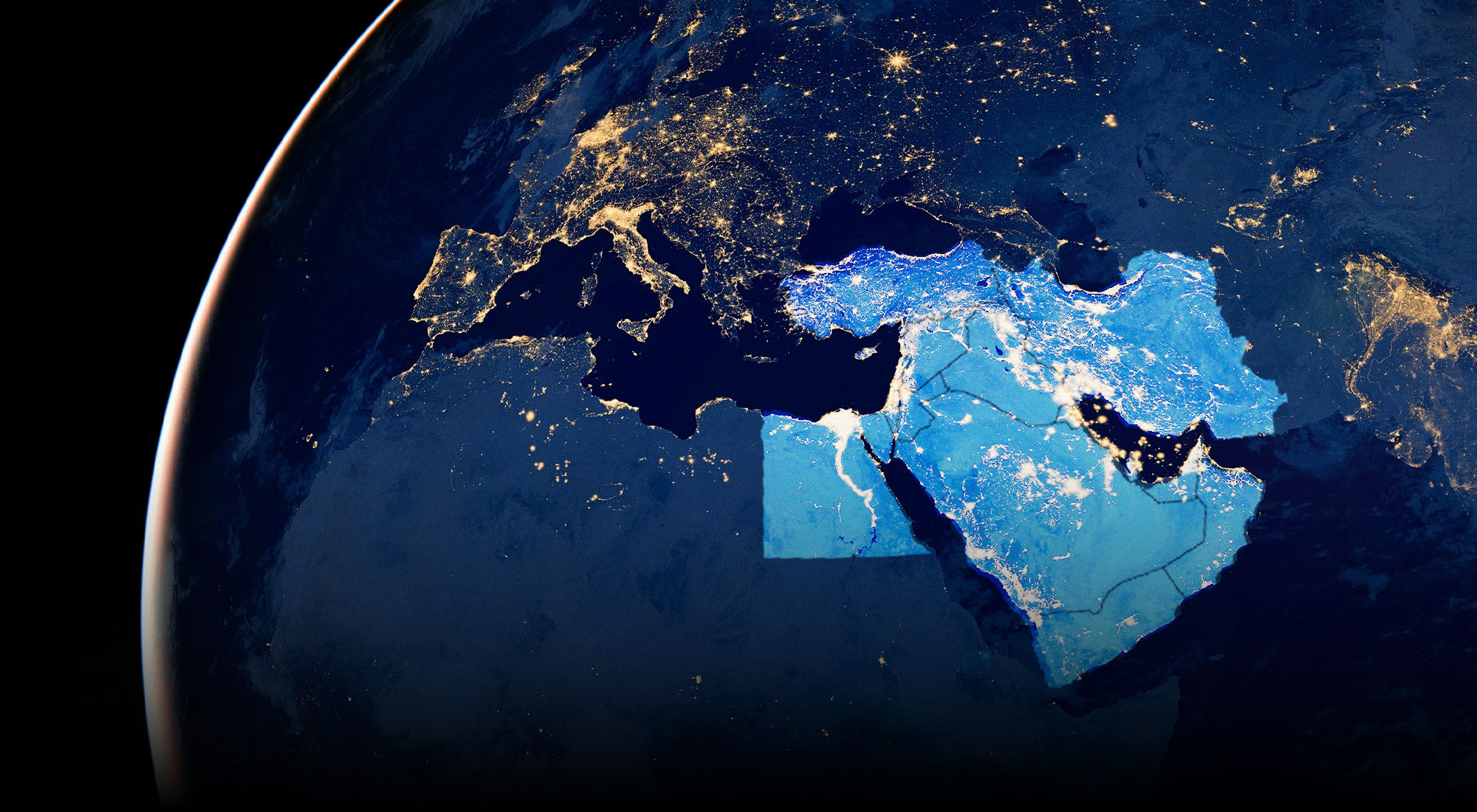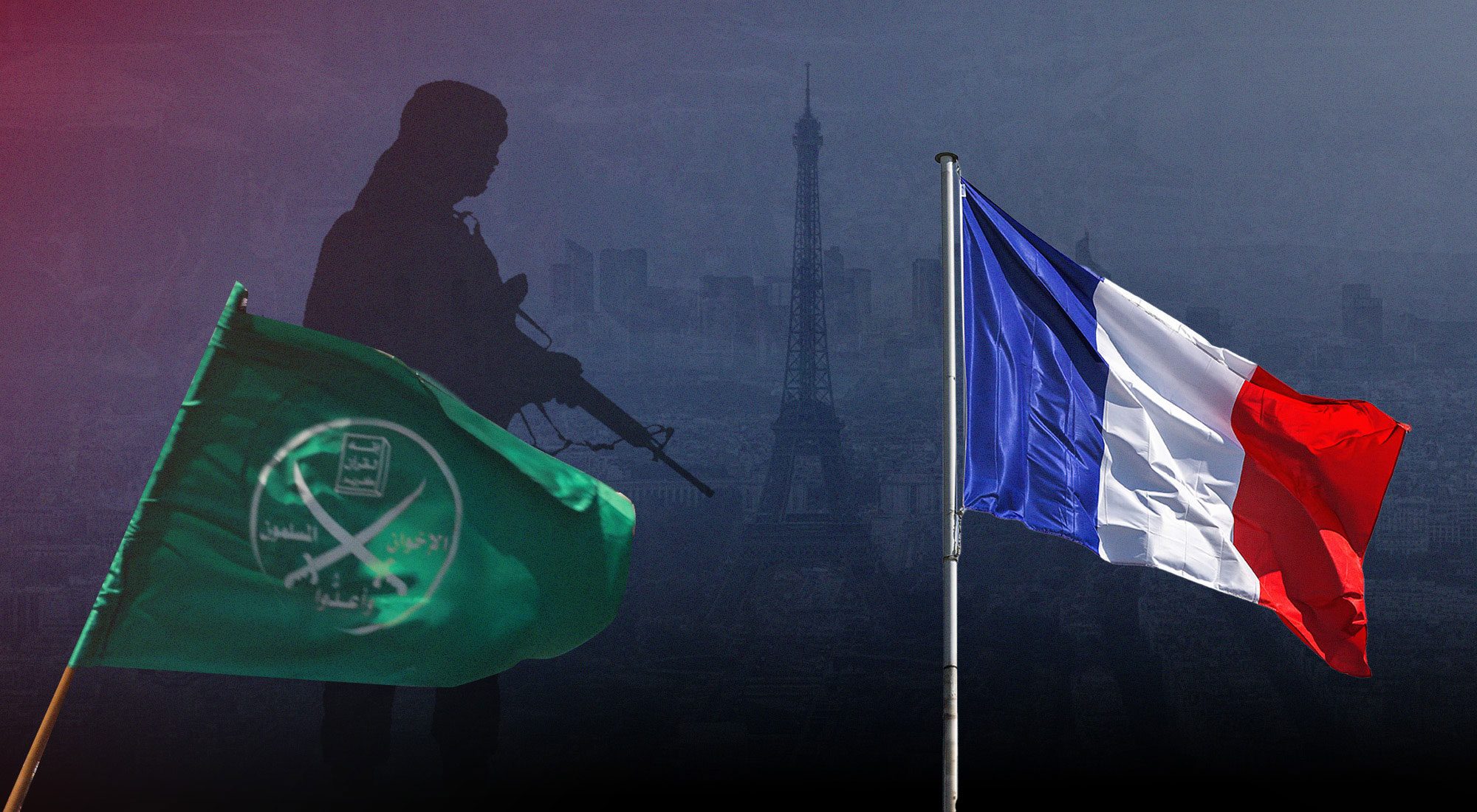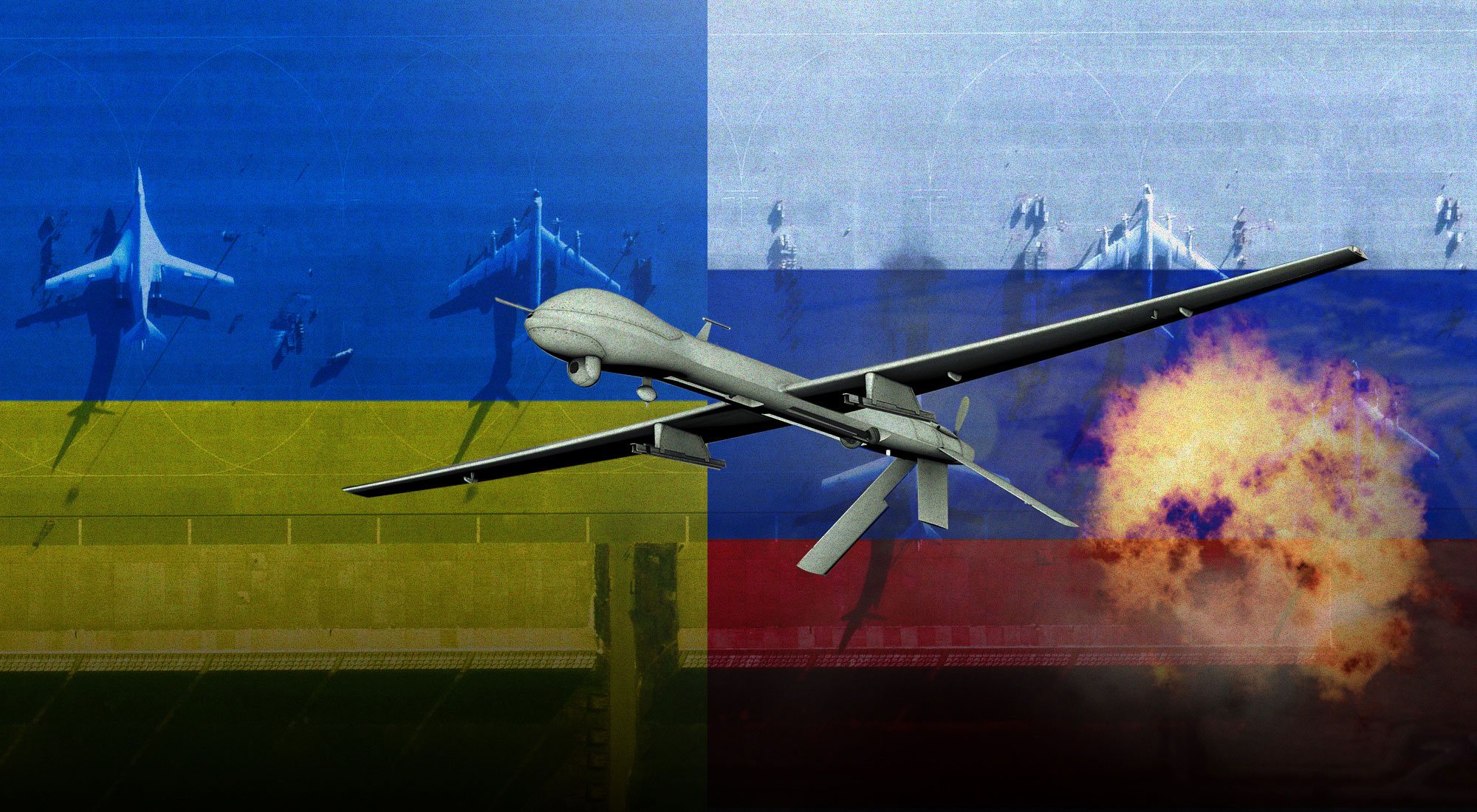Introduction
Pope Francis’ successful visit to Iraq in March 2021 gave a message of hope to the possibility of peace in the war-torn country. Nevertheless, the security challenges facing Iraq remain large and varied. This insight discusses Iraq’s security problems, such as militia insurgence, terrorist outfits, radical regimes, the international rivalry panning out in its territory, and the Mustafa Al-Kadhimi government’s ability to face these challenges.
Sectarian rifts and corrupt governments have made Iraq fragile in terms of security. This instability has attracted terrorist organizations, most notably ISIS, and has increased the influence of radical regimes and militias. The Iraqi government faces many intertwined and complex political and security challenges, both internal and external.
While the United States’ invasion of Iraq in 2003 was the primary reason for the collapse of the country’s governance infrastructure, Iraq’s transitional arrangement and the Nouri Al-Maliki government failed to build a new state following the overthrow of Saddam Hussein’s regime.
Since most administrative institutions were in existence, rebuilding Iraq, especially after the fall of ISIS, should not necessarily have meant rebuilding the entire state. However, political actors in positions of power, such as Al-Kadhimi, will likely seek to strengthen Iraq’s institutions and renew its future vision. [1] One of Al-Kadhimi’s main priorities is holding early elections and improving the electoral law.
Even though Iraqis have become more supportive of state institutions, they are concerned that the underlying factors that caused the upsurge of terrorist organizations and radical groups have not been sufficiently addressed. In addition to countering terrorism, Iraqis are also focused on tackling corruption through state-building and effective governance. [2]
Underlying factors contributing to Iraq’s security challenges
One of Iraq’s fundamental challenges is the Shiite militias’ resurgence, mainly Iran’s proxies. The Al-Kadhimi government faces challenges related to unifying state forces, as most Shiite militia groups are loyal to Iran. Since the overthrow of Saddam Hussein, Shiite militias such as the Popular Mobilization Forces (PMF) have become a political-military factor strongly influencing Iraq’s government and the military.
As militias got trained in Iran and Lebanon during their quiet years, personnel such as those belonging to Badr militia joined Iraq’s security forces. Some militias such as the Mahdi Army (Jaysh Al-Mahdi) fell back, while others operated actively. Ahl Al-Haqq and the Badr militias continued to operate based on Prime Minister Al-Maliki’s request as part of a campaign against Sunni rebels. [3]
To combat terrorist organizations such as ISIS, the Iraqi government needed militias on their side. The Iraqi army was hampered by poor leadership, corruption, inadequate training, and missing soldiers during the Al-Maliki rule. During the operations against the militias, the Iraqi army officers would be in trouble as they could not coordinate among their units, lacked skills and a centralized operations center. Since the Iraqi army was not structured efficiently, Prime Minister Al-Ibadi told militia commanders in 2015 that they were “the key pillar of our system.” [4]
Even though Shiite militias in Iraq were allied to the US during the 2014 US-led coalition against ISIS and played a crucial role in the fight against the terrorist organization, the US is a step closer to announcing the pro-Iranian organization as a terrorist entity. [5] Iranian-backed militias have allied within the Iraqi government too. However, with their loyalty remaining with Iran, they remain Al-Kadhimi’s most significant challenge.
ISIS and radical regimes
The presence of terrorist organizations and radical regimes such as ISIS is a significant challenge Iraq continues to face. In 2014, ISIS took control of over a third of Iraq’s territory, including Mosul, the country’s second-largest city. The Iraqi army’s failure against ISIS fighters in 2014 was seen as an embarrassment for the government. However, the group is just one of the non-state military actors that challenged Iraq’s capacity to secure its territories since Saddam Hussein’s overthrow. [6]
After Abu Baker Al-Baghdadi was killed in October 2019, the new ISIS leader, Abu Ibrahim Al-Hashemi Al-Qurashi, restructured the organization. The restructuring was done after prominent figures in the group were arrested for their alleged involvement in leaking information to the “Guardians of Religion.” The organization, which is based in the Idlib governorate, reportedly contributed to revealing Al-Baghdadi’s whereabouts. [7]
As a result of Al-Hashemi’s reorganization, units such as the Caliph, the Shoura Council, the Delegated Committee, the Military Council, the Security Council, the Security Intelligence Authority, the States Administration, the Foreign Operations Branch, and the Treasury (Baitul-maal) were created.
Under the new “caliph” leadership, the Shoura Council comprises five members and is headed by Al-Baghdadi’s brother, Hajj Jumaa Awad Al-Badri. The delegated committee (the highest executive body) consists of five members and is led by Sami Jassim Al-Jubouri. The committee members are responsible for security, safe bunkers, religious affairs, media, and finance. [8]
ISIS has transformed its strategy for “seizing the land” into a new doctrine of attrition involving surprise attacks and stirring up strife and internal political unrest. The organization revealed that “attrition” operations help in recruitment and their efforts to polarize society. The group has moved away from more extensive combat operations and instead adopted small-scale attacks. ISIS’s new approach also involves the carrying out of sudden and surprise operations in various locations.
ISIS military forces have also been restructured. At the height of its power in Iraq and Syria, the organization fielded 36,000 fighters divided into three divisions. However, it now possesses a single entity called the Khaled Army, consisting of about 4,000 active fighters and 8,000 passive fighters spread across 11 provinces in Iraq. ISIS has recovered its strategic significance and regained its influence in numerous locations. As a result, after 292 reported attacks in the first quarter of 2019, the figure rose to 566 attacks in the first quarter of 2020, registering an increase of 94 percent. [9]
The group has relied on assassinations using automatic weapons and improvised explosive devices, targeting mainly civilians. During the same period, the organization carried out 834 operations in Iraq using the same method against security forces, diplomats, community leaders, the Iraqi army, the Popular Mobilization Forces, and Shiite religious gatherings. In the first quarter of 2020, Diyala witnessed 140 attacks, followed by Baghdad with 106 attacks. [10]
Back in 2014, ISIS was one of the most technology-savvy terrorist groups. They used social media to recruit many young people worldwide and promote the organization’s ideology. It also used its media influence to boost its impact or appear “powerful” to the world by continuously uploading videos of killings and other activities.
After losing vast territories and Al-Baghdadi, the organization suffered from a collapse of its media apparatus. [11] But since its new leader Al-Qurashi’s has taken charge, ISIS has rebuilt its media presence. With the organization being hit hard in Syria and Iraq, it has tried to refurbish its image, even if there were no significant achievements suitable for coverage. [12]
Besides terror strikes, the organization has used the virtual world to carry out acts of piracy using hacking groups created in early 2016 who continue to work for the organization. These groups are divided into four units: The Ghost Caliphate Department, the Sons of the Caliphate Army, the Electronic Caliphate Army, and the Electronic Security Team. All these units got together in April 2016, under the “United Electronic Caliphate,” and their news was broadcast through their Telegram channel and other social media platforms. [13]
On January 21, 2021, a day after US President Joe Biden was inaugurated, two suicide bombers attacked Baghdad’s open-air market, killing 32 people. The attack was a reminder that Iraq is still vulnerable to terrorist attacks that are hampering recovery attempts. This was the first ISIS attack in Baghdad in three years. [14] However, the group continues to pose a security threat through ongoing operations in other areas of Iraq.
Playground for global, regional rivalry
Prospects for security will not be promising as long as Iraq remains embroiled in a tussle between international rivals. Two major powers are competing in Iraq – the US and Iran – struggling to gain the upper hand at political and economic fronts. Even as Al-Kadhimi seeks to strike a balance between competing parties, Iraq’s political establishment is in disarray. Iran is engaged in proxy conflicts in the country through allies that are financed, trained, and supported to carry out terror attacks. [15]
Iran’s main concerns are countering the US military presence in Iraq and re-shaping the Iraqi state. In doing so, Iran has invested in militant groups such as the PMF, Asa’ib Ahl al-Haq, Kata’ib Hezbollah, Kata’ib Sayyid Al-Shuhada, besides several other militias. Some PMF elements were supported by Nouri Al-Maliki as early as 2014. Iran’s relationship with Iraqi militias is more about influence than control, as Tehran capitalizes on current domestic rivalries to ensure long-term Iranian influence in Iraq. [16]
Iraq needs to maintain its relations with the US, as threats from Iran, ISIS, and sectarian groups remain omnipresent. The US must also stay focused on all aspects of threats in Iraq, considering that the country is essential to the US’ strategy of containing Iran’s influence and expansion in the Middle East. The US should also assist Iraq in rebuilding its infrastructure since it would revitalize its economy, logistics, trade, and employment opportunities.
While Iraq’s foreign policy is not Biden’s top priority, the most persistent issue he faces is US troops in Iraq, as they have played a considerable role in the war against ISIS. On February 25, 2021, Biden ordered airstrikes in Syria against Iranian-backed militias, causing numerous militants’ deaths.
These attacks were described as “necessary to address the threat and proportionate to the prior attacks.” [17] The Biden administration’s policies are said to differ from the Trump administration. While Trump withdrew the US from the 2015 Iranian nuclear deal, it is expected that Biden will re-engage with the agreement and improve relations with Iran through diplomacy rather than continue Trump’s method of pressure via sanctions. [18]
Economic recovery is another challenge Iraq faces. It requires the United States’ financial support for Iraq to contain Iran’s influence on militias inside Iraq. [19] Although the US has already provided $49.5 million in aid to Iraq to support local efforts to counter the Covid-19 pandemic, additional support is needed to help Al-Kadhimi assert his authority and carry out reforms.
Al-Kadhimi’s measures
The Al-Kadhimi government was formed amid structural problems and in an unstable domestic and regional environment. The most important of these problems were corruption, the interference of external powers, and the allocation of power-sharing along sectarian-ethnic lines. The country is faced with mutual dependency where, in exchange for benefits, a hierarchical structure of political influence and financial services could be maintained.
The parliament cannot exercise its proper oversight role over the Iraqi government’s performance due to its two authorities’ vested interests, the Council of Representatives and the Council of Union. This operates particularly at the level of transparency and accountability. Political relationships in Iraq are subject to an understanding between the political forces or the intersection of public relations between political parties. [20]
Iraq inherited a weak military under Prime Minister Nouri Al-Maliki, who reportedly replaced trained Sunni soldiers with loyalists, thereby transforming it into an inefficient army. This deficiency is compounded by wide-ranging political, health, and economic problems. To accomplish stability in the country, Al-Kadhimi’s government must enforce its authority over the Iraqi Security Forces and unite them. As of now, its divided military units handicap the state.
The current situation in Iraq calls for optimism given the emergence of the Al-Kadhimi government. There was evident support for Al-Kadhimi both at home and abroad when he was appointed Prime Minister. He has proven to be a suitable candidate for the position for many months, even though Iranian-backed militias oppose him as he was openly critical of them.
Over the past four years, Al-Kadhimi’s gathered experience as the head of the Iraqi National Intelligence Service (INIS), and his success in drastically improving the INIS, gives him several advantages. [21] In that role, he built several significant relationships with neighboring countries and beyond. Al-Kadhimi’s relationship with several neighboring countries, including those in the Arabian Gulf, will also allow Iraq’s regional ties to improve.
However, the prime minister, who does not belong to any political party and does not have the support of any of the militias dominating the security landscape, will have to wait until the upcoming national elections on October 10 before implementing his full program.
Conclusion
Pro-Iranian militias’ influence and ISIS resurgence indicate that Iraq continues to face challenges to its political stability. Even though Iranian-backed militias have helped Iraq in defeating ISIS, they are still destabilizing the country.
ISIS’ readjustments following the severe blows it was subjected to indicate that it is still alive and operating in Iraq. Its recent activities suggest a continuation of the operations it has been carrying out, whether through its forces in Iraq and Syria, countries where it has branches affiliated with ISIS, or to some extent, through remotely inspired “lone wolf” attacks.
The United States’ involvement in Iraq is a significant counterbalance to Iran. However, Iraq’s new government needs to weaken and eliminate Iranian-backed groups and militias by unifying state forces and maintaining a solid relationship with the US Al-Kadhimi has few allies in the national parliament.
Most members of the parliament are pro-Iranian, which has made the implementation process more difficult. The capacity to improve the security situation, combined with concrete action to alleviate social and economic distress, will be crucial in determining whether the Al-Kadhimi government can stabilize Iraq.
References
[1] Mansour, R. (2017). Iraq After the Fall of ISIS: The Struggle for the State. The Middle East and North Africa Program, Chatham House, 1-28.
[2] Ibid.
[3] Cigar, N. (2015). Iraq’s Shia Warlords and Their Militias: Political and Security. Strategic Studies Institute, US Army War College, p. 3.
[4] Ibid, p. 57.
[5] Al-Sharif, O. (2021, January 12). Pro-Iran militias remain Iraqi PM Al-Kadhimi’s biggest challenge. Arab News: https://www.arabnews.com/node/1791491
[6] Mansour, R. (2017). Iraq After the Fall of ISIS: The Struggle for the State. The Middle East and North Africa Program, Chatham House, 1-28.
[7] Al-Arabiya. (2019, October). Al-Arabiya is unique in an exclusive dialogue from prison with Adeel Al-Baghdadi and whoever guides him. YouTube: https://www.youtube.com/watch?v=hEF45o5X3RY
[8] Al-Hashimi. (2020, May 19). ISIS 2020: New Structures and Leaders in Iraq Revealed. Newlines Institute for Strategy and Policy: https://cgpolicy.org/articles/isis-2020-new-structures-and-leaders-in-iraq-revealed/
[9] Thgeel, A. (2020, July). Politics and Security in Iraq: Challenges and Opportunities. Retrieved from Friedrich-Ebert-Stiftung: http://library.fes.de/pdf-files/bueros/amman/16592.pdf
[10] Knights, M., & Almeida, A. (2020, May). Remaining and Expanding: The Recovery of Islamic State Operations in Iraq in 2019-2020. Combatting Terrorism Center at West Point: https://bit.ly/2JaFlK4
[11] Al Saleh, H. (2019, October). The Collapse of the Ministry of ISIS Information. Retrieved from Al-Arabiya: https://bit.ly/2Lk1zr2
[12] Ibid.
[13] Tinnes, J. (2019, April 2). Bibliography: Terrorism and the Media (including the Internet). Perspectives on Terrorism, 13(2), 79-141. Terrorism Research Initiative: https://www.jstor.org/stable/26626869
[14] Alaaldin, R. (2021, February 17). To save Iraq from economic collapse and fight ISIS, contain Iran’s proxies. Brookings Institution: https://www.brookings.edu/blog/order-from-chaos/2021/02/17/to-save-iraq-from-economic-collapse-and-fight-isis-contain-irans-proxies/
[15] Kaltenthaler, K., Dagher, M., & Cordesman, A. (2020, May 14). A US-Iraq Strategic Dialogue: A Question of Interests and Expectations. Washington Institute: https://www.washingtoninstitute.org/policy-analysis/us-iraq-strategic-dialogue-question-interests-and-expectations
[16] International Institute for Strategic Studies (IISS). (2020). Iran’s Network of Influence in the Middle East. Chapter Four: Routledge.
[17] Starr, B., Liebermann, O., & Gaouette, N. (2021, February 26). US carries out airstrikes in Syria targeting Iranian-backed militias. CNN Politics: https://edition.cnn.com/2021/02/25/politics/us-iraq-iran/index.html
[18] Gulmohamad, Z. (2020, November 16). What will Iraqi-US bilateral relations look like under Biden’s administration? Al-Arabiya: https://english.alarabiya.net/views/news/middle-east/2020/11/16/What-will-Iraqi-US-bilateral-relations-look-like-under-Biden-s-administration-
[19] Ibid.
[20] Thgeel, A. (2020, July). Politics and Security in Iraq: Challenges and Opportunities. Friedrich-Ebert-Stiftung: http://library.fes.de/pdf-files/bueros/amman/16592.pdf
[21] Al-Oraibi, M. (2020, April 14). Can Mustafa Al Kadhimi finally put Iraq on the right path? The National: https://www.thenationalnews.com/opinion/comment/can-mustafa-al-kadhimi-finally-put-iraq-on-the-right-path-1.1006069








